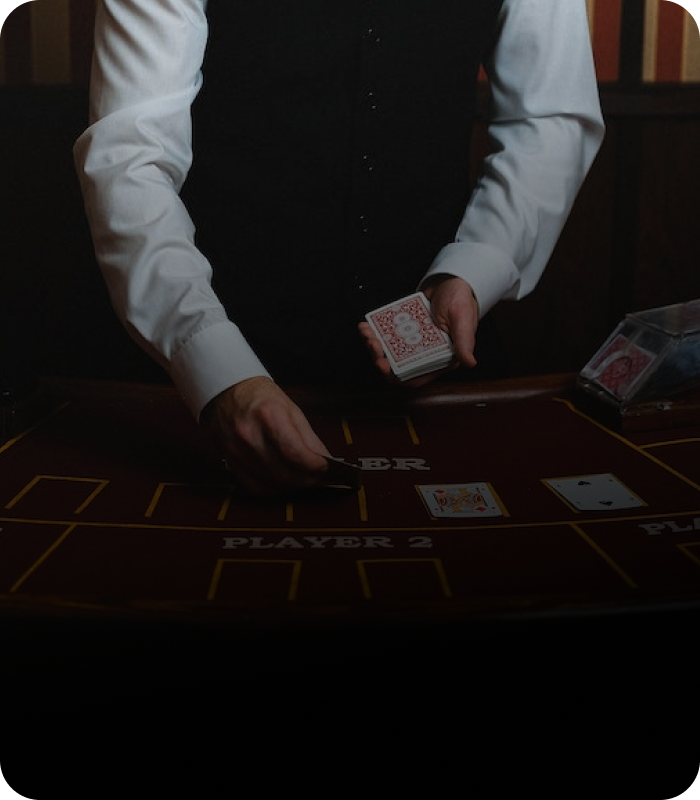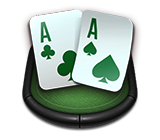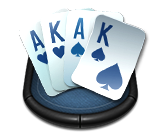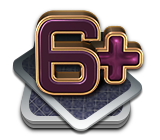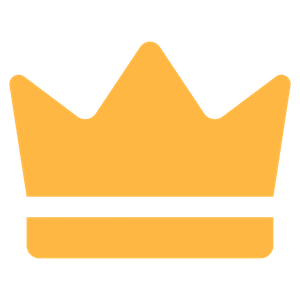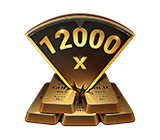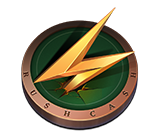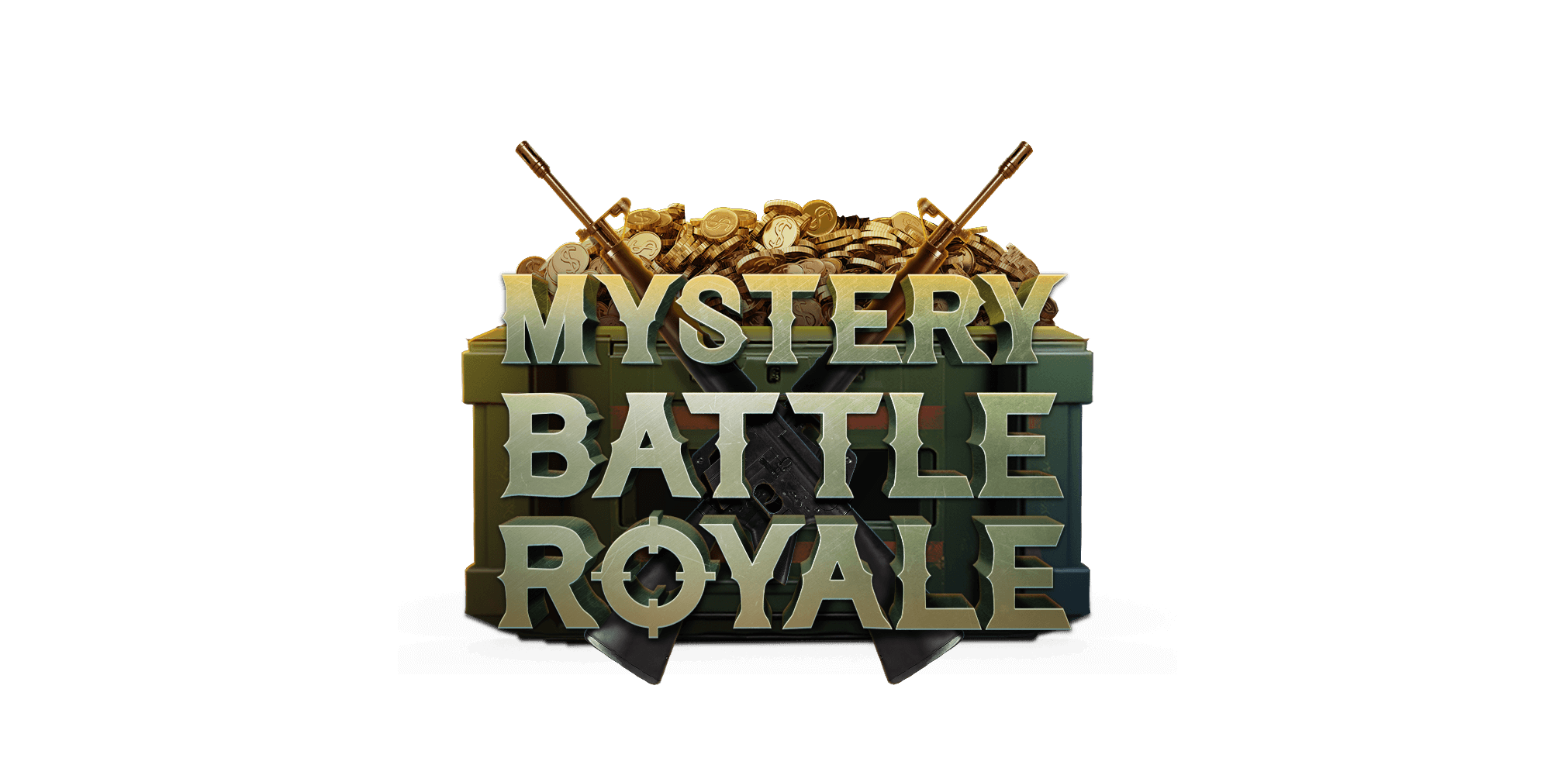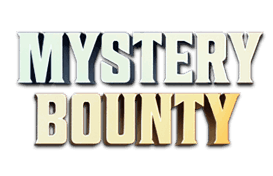
Want to learn how to play Omaha poker? Bored of Hold’em and looking to mix things up with a fresh new game? This guide is all you need to get started out playing Omaha. We’ll teach you the complete rules, as well as offer some vital tips and strategy advice to help you on your way.
What is Omaha Poker?
If you’re searching for how to play Omaha poker, you probably already have a rough idea of what the game entails. But just in case, let’s briefly talk a little about what Omaha actually is before jumping into the rules.
Omaha has similarities to Texas Hold'em, which makes it a natural game to progress to after learning the Cadillac of poker. It makes use of five community cards, for instance, while the ranking of hands is identical to Hold’em.
Differences With Texas Hold’em
In fact, there are only two real differences between how to play Omaha poker and Texas Hold’em. First of all, each player is dealt four hole cards. And secondly, you are forced to use two cards when making up your final five-card poker hand.
In Hold’em, it’s possible to “play the board”, using all five community cards. You may also use just one of your hole cards. But the rules of Omaha explicitly state that you must use exactly two cards from your initial hand.
Origins of Omaha Poker
The exact historical origins of Omaha - or Omaha Hold’em to use its full name - are not known. However, a game was played at the Greek club in Memphis throughout the 1960s, which came to be known as Greek Hold’em. The rules of this particular poker game are identical to Texas Hold’em, only you must use both hole cards to form a hand.
At some point in the mid to late 1970s, Greek Hold’em was introduced to the Golden Nugget in Las Vegas. Bill Boyd, the casino’s general manager, is believed to have discovered the game through Robert Turner, a professional poker player. By the early 1980s, the Golden Nugget management had changed the rules, opting to deal four hole cards instead of two.
What do you need to play Omaha?
Okay, before we get to the rules, a fundamental part of how to play Omaha poker is the setup. First things first, you’re going to need anywhere between two and ten players for a standard game. If you’re playing 5-card Omaha or another variation involving more hole cards, you’ll need to reduce the maximum number of players accordingly.
In terms of equipment, you’ll need a table, a set of poker chips and something to act as a dealer button. A standard deck of 52 playing cards is also required. The full deck is used when playing Omaha, with no jokers.
Omaha Poker Rules
 Okay, this next part of our “how to play Omaha poker” guide is the most important of all. We’re going to talk about the game’s rules, including hand rankings, how a hand progresses and the restrictions around betting. Let’s begin by talking about the latter.
Okay, this next part of our “how to play Omaha poker” guide is the most important of all. We’re going to talk about the game’s rules, including hand rankings, how a hand progresses and the restrictions around betting. Let’s begin by talking about the latter.
Unlike its cousin Texas Hold’em, Omaha poker is almost never played as a No Limit game. The game sometimes uses a Fixed Limit betting model. But Pot Limit Omaha (PLO) is by far the most common way to play for real money. This means that you can only ever bet up to the size of the pot, and not a penny more.
Hand Rankings
To fully understand how to play Omaha poker, you’ll need to know the ranking of the various hands. So before we go any further, here’s a complete list of possible poker hands, in order from strongest to weakest.
| Omaha Hand | Description | Hand Example |
|---|---|---|
| Royal Flush | Ten to Ace of the same suit. | A♠️-K♠️-Q♠️-J♠️-T♠️ |
| Straight Flush | Five of the same suit, in numerical order. | K♠️-Q♠️-J♠️-T♠️-9♠️ (King high straight flush) |
| Four of a Kind | Four of the same rank with any fifth card as the kicker. | 7♣-7♥️-7♦️-7♠️-J♣ (Four 7s) |
| Full House | A pair combined with a three-of-a-kind. | K♥️-K♣-K♦️-6♦️-6♣ (Kings full of 6s) |
| Flush | Five cards consisting of the same suit, but not in sequential order. | T♣-8♣-7♣-3♣-2♣ (Ten high flush) |
| Straight | Five unsuited cards in numerical order. | 9♦️-8♣-7♥️-6♥️-5♣ (Nine high straight) |
| Three of a Kind | Three of the same rank with any fifth card. | A♦️-A♣-A♥️-K♣-J♣ (Three Aces) |
| Two Pair | Two different pairs which don’t make up four of a kind, plus any fifth card. | Q♥️-Q♦️-3♣-3♥️-A♣ (Queens and 3s) |
| One Pair | A single pair, with three unpaired cards of any rank. | J♠️-J♦️-A♣-7♦️-2♣ (A pair of Jacks) |
| High Card | Five completely unconnected cards that don’t fall into any of the above categories. | Q♦️-T♦️-6♣-5♥️-2♠️ (Queen high) |
Starting an Omaha Game
It’s possible to play Fixed Limit Omaha. But unless otherwise stated, we’ll be referring to Pot Limit games throughout this article on how to play Omaha poker.
Before the cards are dealt for the first time, a random draw determines the position of the dealer button. Then, the two players to the left of the dealer must post a compulsory bet. The first is known as the “Small blind”, which is usually half the size of the “Big Blind”, posted by the next player in sequence.
Some Omaha games also require each player, including the blinds, to post a compulsory ante. All of this ensures there’s always money in the pot to play for.
How an Omaha Hand Plays Out
 The following section of our guide will talk you through exactly what takes place in a single hand. So strap in and let’s learn how to play Omaha poker!
The following section of our guide will talk you through exactly what takes place in a single hand. So strap in and let’s learn how to play Omaha poker!
Preflop
Once all antes and blinds are collected, the dealer distributes the cards. Beginning with the player immediately to the left of the button, everyone receives a starting hand containing four cards.
As the blinds have already acted by posting their mandatory bets, the third player from the dealer button will be the first to act. This position is known as “under the gun”, and their possible options are as follows.
| Action | Description |
|---|---|
| Fold | If a player doesn’t like their cards, they can throw them away at no cost, taking no further part in the hand. |
| Call | In order to proceed in the hand, a player must match the current bet, which is the size of the Big Blind. |
| Raise | It is also possible to increase the size of the last bet, by raising. This requires any players behind you to pay a greater amount in order to keep playing. In PLO, any bet or raise amount must be equal to the value of the Big Blind or greater. |
After the player under the gun has acted, the next player has the same options ahead of them. We move round the table one at a time until everyone wishing to remain in the hand has matched the largest bet.
At this point, we see the first community cards. But it’s also possible that nobody wishes to match the largest bet. In that case, whoever made the bet immediately takes down the pot and we move to the next hand. The dealer button moves one space to the left, as do the blinds.
Flop
The dealer places three cards face up in the middle of the table, which is known as the “Flop”. Every player can use these to make their own five-card poker hand, which is why they’re also known as “community cards”.
After the flop is dealt, the player immediately to the left of the dealer button starts the second round of wagering. Since there are no compulsory bets at this point, they will have the option to “check”. Essentially, this means continuing to play in the hand but without wanting to put anything extra into the pot.
However, they could also make a bet. The minimum amount is equal to the Big Blind, while in PLO, the maximum is equal to the size of the pot. If all remaining players in the hand check, we simply move on to the next card and round of betting. But if anyone bets, players wishing to continue can either call or raise, just like the preflop wagering round.
Turn
Once we’re done with the flop, the dealer reveals a single card face up, meaning we can now see four community cards. This is called the “Turn” card.
Now the third round of betting takes place, with the same set of options as before. Once again, the player to the left of the button opens the action, either by checking or betting. And all other players need to match any bets in order to remain active in the hand.
River
The fifth community card is known as the “River”, and its arrival marks the start of the fourth and final betting round. As with all previous rounds, it’s the player seated left of the dealer button who kicks us off.
Once all bets are resolved, it’s time to reveal the hands of all remaining players and determine a winner. This is called the “showdown” and it begins, as always, with whoever is sitting to the left of the dealer. The best hand takes down the entire pot. If two or more hands are of equal value, the chips are divided equally, in proportion.
Omaha Poker Strategy and Tips
 We can’t talk about how to play Omaha poker without discussing a little bit of strategy. So in this part of our guide, we’ll do exactly that!
We can’t talk about how to play Omaha poker without discussing a little bit of strategy. So in this part of our guide, we’ll do exactly that!
Hand Selection
In order to learn how to play Omaha poker like a pro, it’s important to master your starting hand selection. Choosing whether or not to continue preflop is the one decision that will impact the most upon your bottom line. Sound starting hand selection is crucial to becoming a winning Omaha player.
Don’t think of Omaha starting hands in the same way as Hold’em. For instance, the best possible holding is A-A-K-K double-suited. But a beginner might think that the second best holding is A-A-Q-Q double-suited when it’s actually A-A-J-T double-suited. That’s due to the much greater potential for making the nut straight,
You can find plenty of charts online to help you figure out the best Omaha starting hand selection strategy.
Position
As with all poker games, position is an integral part of PLO strategy. When you’re last to act, you can see the decisions of every other player first, giving you more information and a big advantage. What’s more, when you’re “in position” (acting last in the hand) you have much more control over how big the pot becomes.
With that in mind, it’s important to vary your decisions based on your relative position. When out of position, you need to tighten up your ranges. Don’t enter the pot preflop with weak hands and be more willing to fold to a bet or raise. Similarly, when acting later in the hand, a player can bet more liberally, as other players come under greater pressure.
Opponents
Omaha is much more focused on having the “nuts”, meaning the best possible hand, than games like Hold’em. Particularly when you’re starting out, it’s not advisable to be drawing to any hand other than the nuts. And you can play a slightly more mechanical game, based on sound mathematical decisions.
However, knowing the tendencies and ability level of your opponents is still valuable. If you’re playing against beginners, for example, you might want to avoid bluffing. That’s because newcomers to Omaha from Hold’em often overvalue their hands and call with everything. On the other hand, you definitely want to make more value bets and extract as many chips as possible.
Bluffing
If you’re going to learn how to play Omaha poker effectively, you’ll need a little bit of acting ability. There’s more to the game than just sitting around waiting for the best possible starting hands to appear. If you don’t make well-timed bluffs, you won’t become a winning long-term player.
Compared to Hold’em, you should bluff less often when playing Omaha. That’s because it’s much easier to make a big hand, given the increased number of hole cards. However, semi-bluffing is still a huge part of the game. Betting big draws is very common in PLO because a lot of the time such a hand will be the favorite to win.
Blockers
On a somewhat related note, blockers play an even bigger role in a Pot Limit Omaha game than in Texas Hold’em.
Imagine a board that reads K♦️ 9♦️ 6♣ 3♥️ 2♦️. You’re holding the A♦️ but don’t have another diamond. You can’t make a flush, since you only have one diamond in your hand. But you know for certain that nobody else has the nut flush, so you can certainly represent it.
Omaha Poker Variations
Once you’ve learned how to play Omaha poker, you’re well on your way to understanding the different variations too. The most common of these is Omaha Hi-Lo, where the pot is split into two. At the end of each hand, the strongest holding claims half of the chips, while the best “low” hand takes the other half.
This greatly impacts your strategy, since you are not just trying to make the best high hand anymore. You also need to think about lower-value, unpaired cards. For that reason, the best possible starting hand in Omaha Hi-Lo is A-A-2-3 double-suited.
Some other popular poker games based on Omaha include 5-Card and 6-Card Omaha. Both use the exact same rules, only the number of hole cards is increased. You are still required to use exactly two cards from your starting hand.
Why Play Omaha Poker
The popularity of Omaha, specifically Pot-Limit Omaha, has surged recently, and it is now the second most-played poker variant in both live poker and online poker. It’s not surprising that a majority of the action takes place at online high-stakes Omaha tables.
But because it is a game of action, it is also a game of big ups and downs. So always keep level-headed and stay in emotional control. If you’re keen to pick up Pot-Limit Omaha, it is wise to first learn how to play Texas Hold’em. Once you understand the fundamentals of Texas Hold’em and have a grasp on the workings of the game, you’ll be able to transition to Omaha with ease.
Omaha Poker FAQs
Q: What hands should you not play in Omaha?
Hands that are considered challenging in securing the win are:
Hands with a “Dangler”
A flush
Medium and Small Pairs
Low Rundowns
Three-of-a-kind
Four-of-a-kind
Related: What Are the Worst Starting Hands in Omaha?
Q: What are the best starting hands in Omaha?
The best possible hands to have in Omaha are hands with 2 pairs and connectors.
Related: 20 Best Omaha Poker Starting Hands.
Q: Is Omaha harder than Holdem?
For beginners, Omaha is definitely a more challenging game. It takes a certain amount of skills and experience to play Omaha poker well. It requires a tight game in order to get the nuts. Additionally, the relative hand value changes quite often in this game compared to Texas Hold'em.
Hold'em is a more popular game, played with no pot limits and often dictated by chance as much as by the player's skills. It's the combination of luck and experience that can secure victory.
Both games present some challenges, especially for those who switch from Hold'em to Omaha, but it's Omaha Poker that is considered a harder variant.
Q: What makes a good Omaha player?
Great intuition and experience - you need to be able to assess your competition to select the best strategy.
Focus on the starting hand - a good Omaha player knows the starting hand has critical significance.
Knowing how to place bets - particularly on Pot-Limit Omaha, it's advisable to respect big bets and raises, as most players don't bluff in this game variant.
Knowledge about when to draw - it's best to go all in only with an added value. Otherwise, you might find yourself between a set and a nut flush draw.
Betting the strongest drawing hands - an experienced player knows how to best their most substantial drawing hand in order to win more pots.
Ultimately, the best approach to playing any poker game is to know its rules and keep them in mind throughout the play. As we've mentioned before, many players coming from Texas Hold'em choose the same or similar strategy for Omaha when it's not suitable for this game.
Another aspect worth consideration is practice. It's good to gain some valuable experience, for example, by playing games for free or with small limits, in order to learn. Going from Texas to Omaha is easier, and you can try both by playing online poker games.
Having read our comprehensive guide, you should now fully understand how to play Omaha poker. If you’re ready to test out your newfound knowledge, why not hit up the Natural8 PLO tables? You’ll find cash games ranging from $0.01 / $0.02 to $10 / $20, tournaments and even 5-card Omaha tables.
Don’t forget to subscribe to our newsletter to get the latest poker tips as well as info on upcoming poker events.

.webp)










